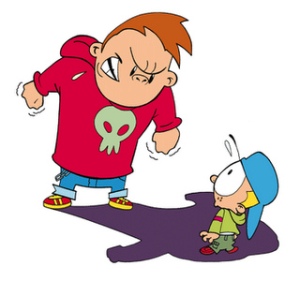
I wrote before about what developmental scientists call “Theory of Mind” – the ability to reason about others’ mental states, such as desires, beliefs, and intentions. This field of research is endlessly fascinating, as there is so much to learn. One of the hardest things to accommodate is seemingly contradicting findings with different age groups.
Take for example research about desire. A while ago (16 years now), researchers looked into 14- and 18-month-olds’ ability to respect another’s desire that conflicted with their own. An experimenter exhibited “liking behaviours” (saying “yummy”, rubbing her tummy, etc.) towards either goldfish crackers or broccoli. Since 93% of the kids preferred goldfish crackers (naturally), for about half of the kids the experimenter’s preference for broccoli conflicted with their own. Then the experimenter held out her hand and asked, “Can you give me some?”
About 80% of the 14-months-olds gave the experimenter goldfish crackers regardless of her expressed “desire”. However, only 30% of the 18-months-olds gave her goldfish crackers when she showed preference for broccoli. That is, the majority of 18-months-olds were able to respect the experimenter’s preference for broccoli, as weird as they may have thought it was. So, as per the authors, 18-months-olds were able to consider another person’s desire and act on it, despite the conflict with their own preference.
Now, another recent research looked at 3- to 5-year-olds. Cristina Atance is a lovely person and bright researcher working at Ottawa University. Our lab has collaborated with hers and we have a good relationship. She and her graduate student ran a study in which they looked at whether preschoolers can choose a gift for their mom. They showed the kids two items: a stuffed teddy bear and a magazine. There were several copies of each item, like you can see in a store. They asked children what would be a good gift for them and what would be a good gift for their mom. But they changed the order of the questions. So, some of the children first got to choose a gift for themselves and then choose a gift for their mom, whereas some of the children had to choose first for mom and only then for themselves. They also had a condition in which children were told that they will get to choose for themselves later, but they have to choose for mom first (the anticipated satisfaction condition). Turns out that all kids were better at choosing the appropriate gift for mom after they chose (or anticipated choosing) a gift for themselves than they were before they chose a gift for themselves. Most 3-year-olds selected the teddy bear for mom if they had to choose for mom first, but about 50% were able to choose correctly after they chose the teddy bear for themselves. Most 4- and 5-year-olds were better than that, and were able to choose the appropriate gift for mom after they chose a gift for themselves (although their performance when choosing for mom first was lower).
There are a few problems with this study. One of them is the (very) small sample size – there are simply not enough kids in each condition and each age group to really be able to generalize. Another problem (and I think the main one) is with the fact that the verbal instructions for the choose-for-self-first and the anticipated-choosing-for-self were much longer than the last, choose-for-mommy-first condition. “Stop-and-think” paradigms have been well documented to increase preschoolers’ inhibitory control, so it’s possible that the longer verbal instructions provided a long enough “stop and think” time interval for the kids to think about what’s actually appropriate for mom.
But let’s assume that we accept the results of this study as is. How come 18-months-old kids can think about someone else’s desires but they somehow loose this ability when they are 3-years-old? One explanation is that there’s something different in the way we think about food from a very young age. That is, when it comes to food (the objects of “desire” in the first study I discussed) even babies can understand that different people like different things. I suspect that’s not the case, but that’s one difference between the first and second papers I mentioned. Another possibility (and I think this one’s more likely) is that all of the babies’ experience with the experiment in the first study was her intense dislike of goldfish crackers and her intense liking of broccoli. In contrast, 3-year-olds are likely to experience their mom as someone who actually likes teddy bears (because when your toddler brings you a teddy bear, you say “oh, cute teddy!” even if you are only half conscious), and are not very likely to experience their mom as someone who reads magazines (do you know any moms of very young preschoolers who have the time?). Therefore, it only makes sense that the kids were not entirely sure what to do. By the way, I tried this with my own kids, and both said that, between a stuffed zebra and glasses, glasses would be a good present for mommy – despite never seeing me wearing glasses. But they also thought I would like broccoli better than a cupcake (not quite true), at which point the conversation was derailed by requests for cupcakes. Clearly my homemade experiment was not well thought out.
That said, this field of research is really interesting and highly practical. The next time you want to take your preschoolers shopping, promise them they can choose something for themselves at the end, and see if it goes better. I would love to hear the results of that experiment.

